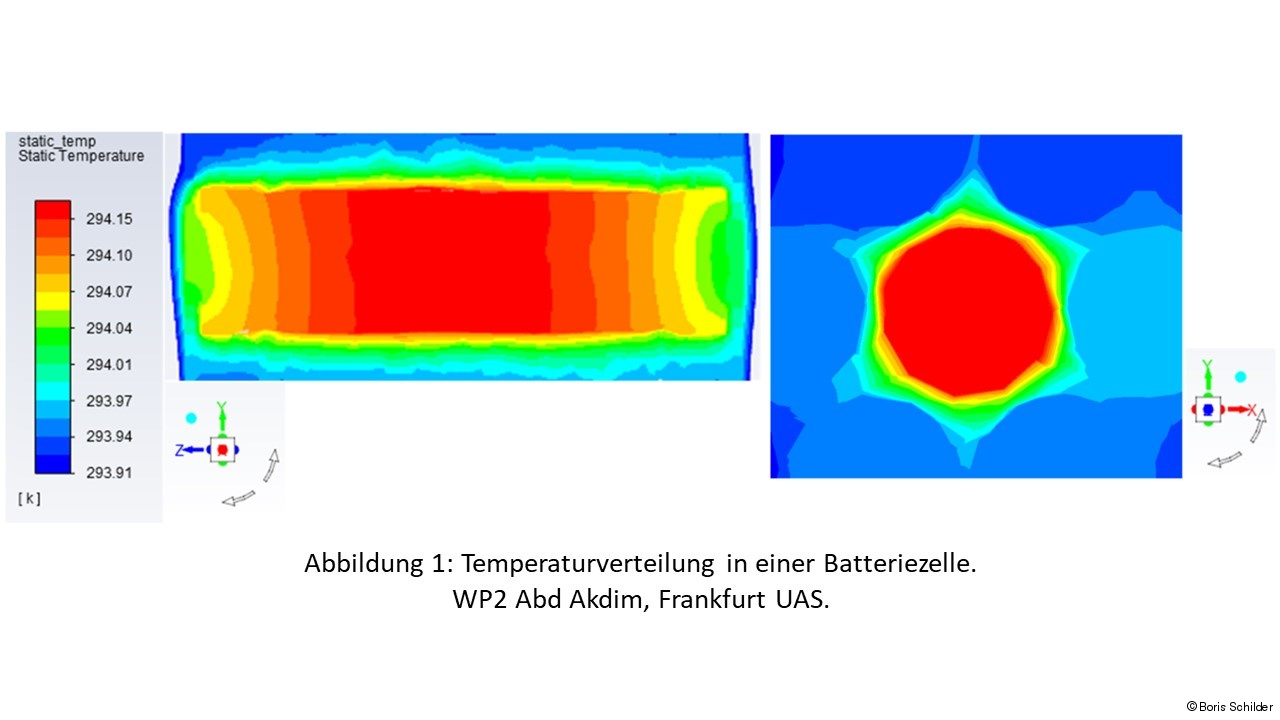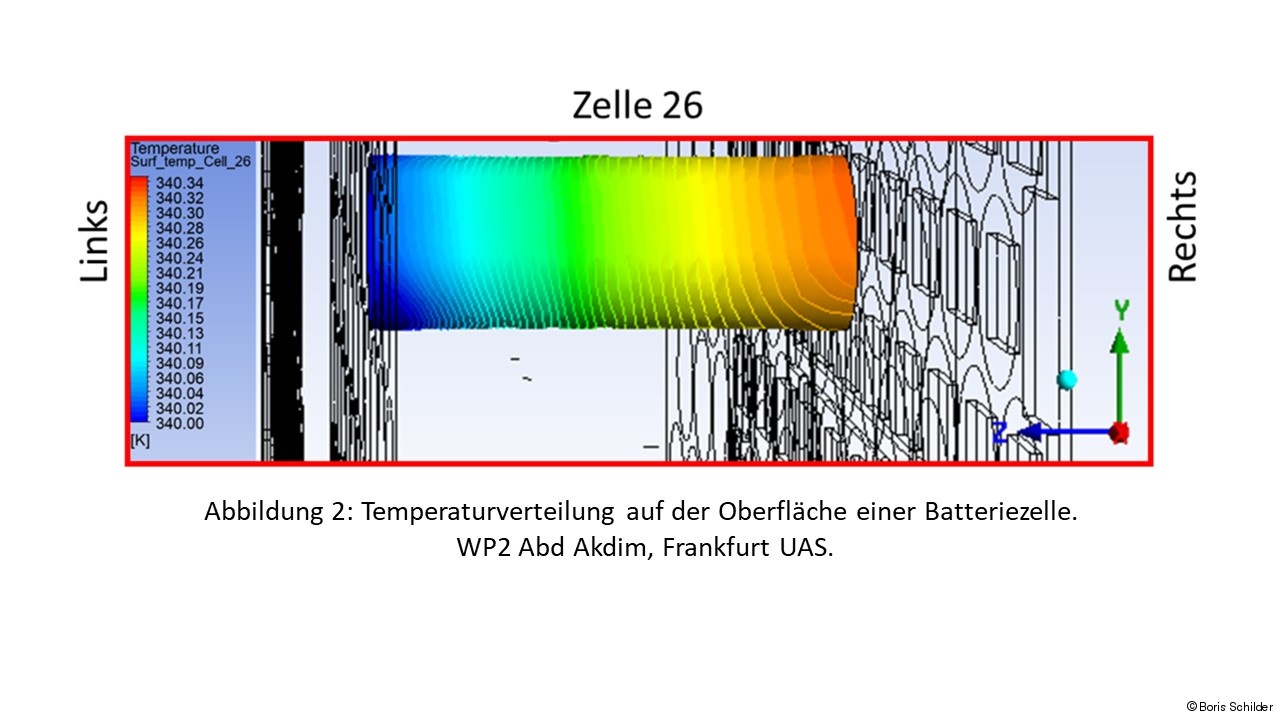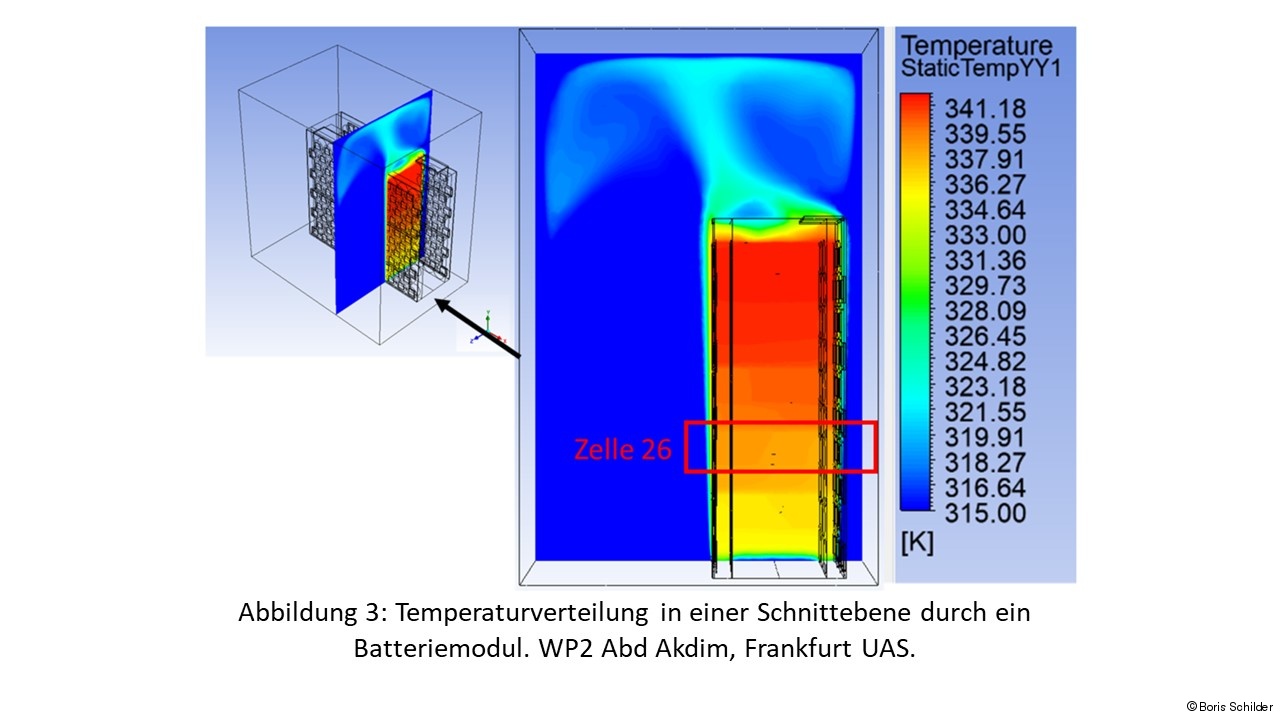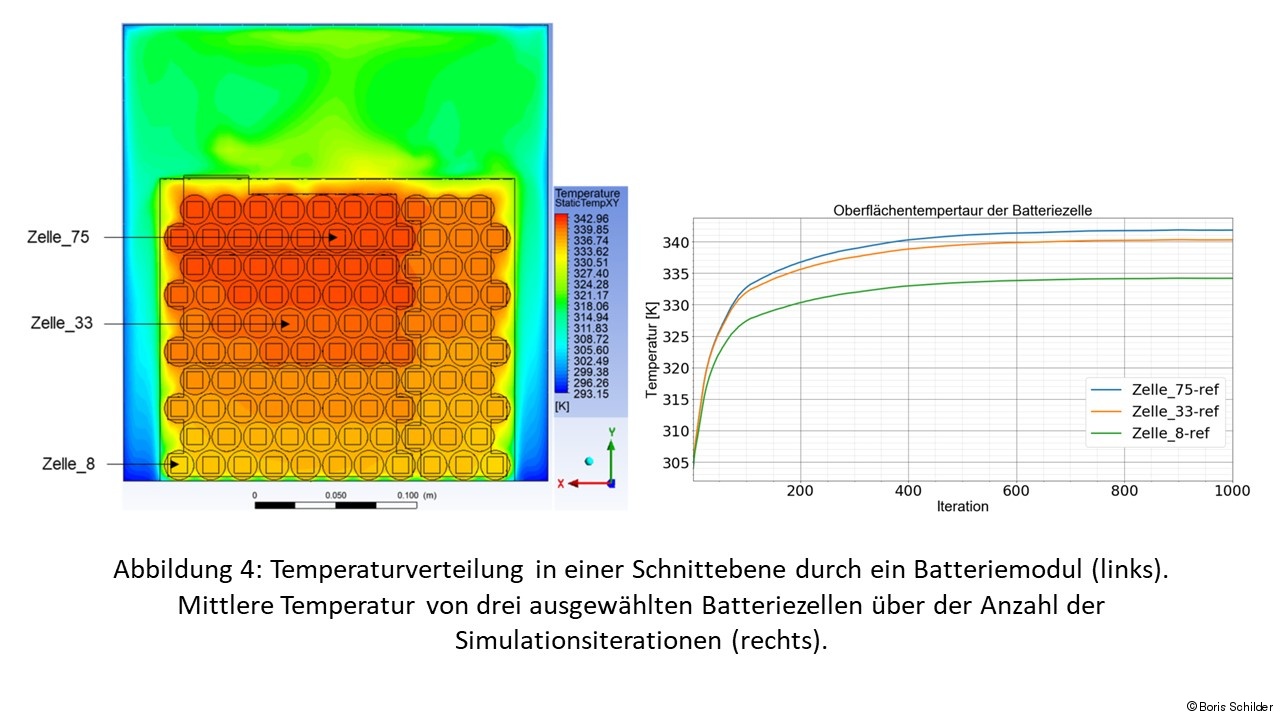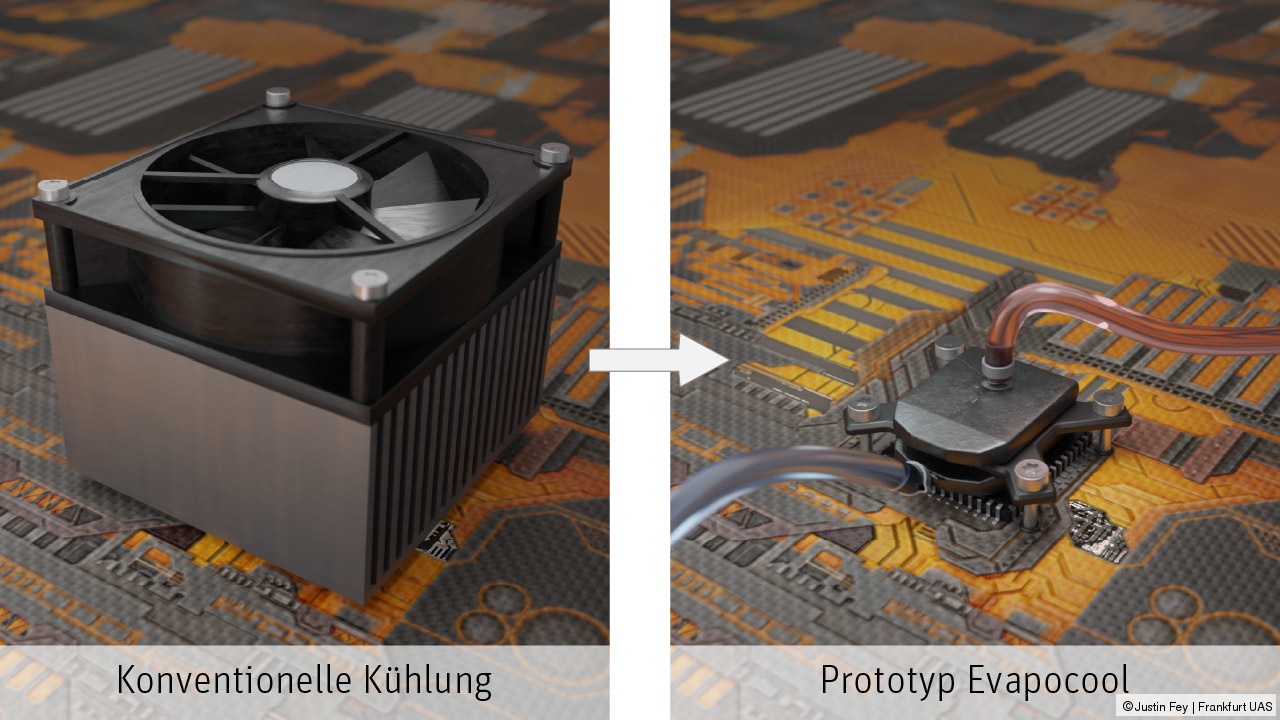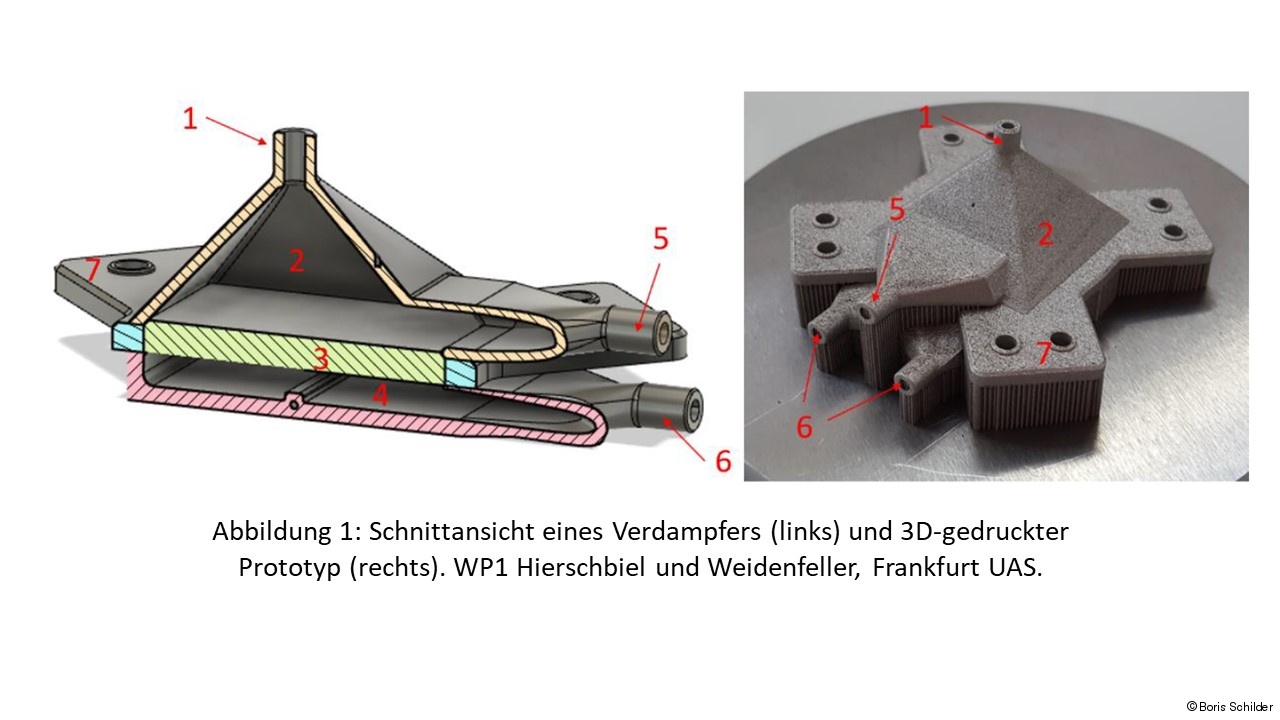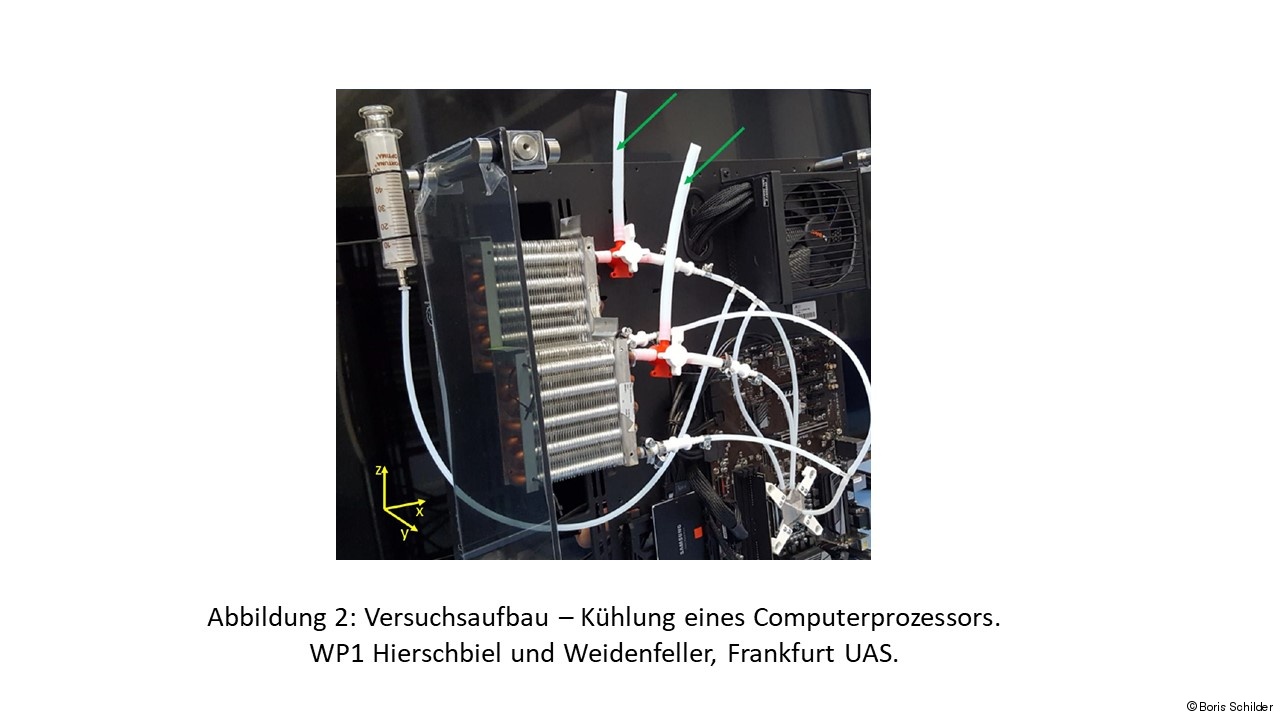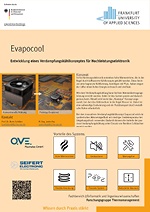Batteries in electric vehicles must be able to deliver and absorb high currents during driving and charging. This generates heat in the battery, which leads to a rise in temperature. The aging and performance of lithium-ion batteries strongly depend on the temperature and the temperature distribution within the battery.
We are using simulations and experiments to investigate heat generation and heat transport in battery modules. The goal is to develop thermal management concepts that enable the best possible heat removal and the most homogeneous temperature in the battery. This can have a positive influence on the service life, energy density and costs of batteries.
Contact: Prof. Dr. Boris Schilder
High-performance electronics generate high heat flows that are usually dissipated by air-based cooling concepts. However, air cooling has the disadvantages that it offers only limited cooling performance, requires a lot of space, the fans consume energy and can be noisy.
Evaporative cooling offers the highest heat transfer performance and can operate passively and therefore silently.
Current evaporation-based cooling concepts are mostly based on the "heat pipe" concept. Water is often used as a cooling medium in heat pipes. To cool high-performance electronics down to acceptable temperatures (e.g. 70 °C), low system pressures and thus complex evacuation as well as a tight, pressure-resistant system are required. Therefore, the medium is transported in metallic pipes, which do not allow a flexible design of the fluid transport.
Our goal is to develop a novel evaporative cooling concept using a synthetic cooling medium that has a low boiling temperature (about 50 °C) at ambient pressure. This allows the system to operate at ambient pressure and eliminates the need for pressure-resistant walls. In contrast to a heat pipe, a capillary structure is only required in the evaporator, so normal hoses can be used for fluid transport.
Contact: Prof. Dr. Boris Schilder, Justin Fey

